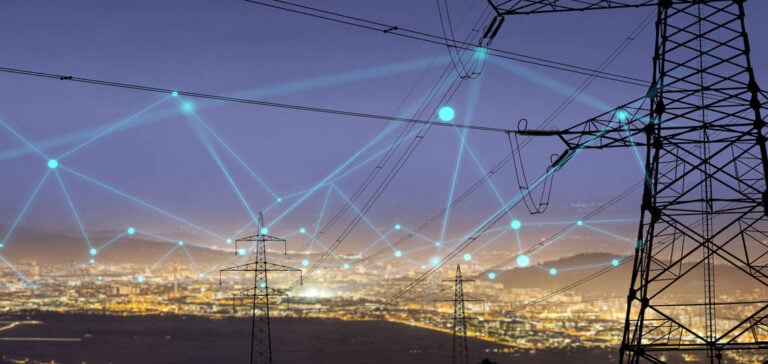The role of electricity grids is proving to be essential for the energy transition. Their proper development is crucial to achieving our climate goals and securing our energy future.
The world faces a colossal challenge in its quest to achieve carbon neutrality and energy security by 2040. TheInternational Energy Agency (IEA) warns that 80 million kilometers of power grids need to be added or upgraded. In a groundbreaking report, the IEA warns against the lack of ambition and attention being paid to these networks, calling them the weak link in clean energy transitions.
The Power Grid Challenge
Without greater political attention and investment, gaps in network quality could jeopardize the goal of limiting global warming to +1.5°C above pre-industrial levels. What’s more, it would compromise global energy security. Electricity production, fuelled by renewable energies replacing fossil fuels, is constantly on the rise, reinforcing the importance of power grids, not least because of the decentralized nature of these new energy sources.
The Rise of Renewable Energies
This year, 80% of new power plants worldwide were renewable energy projects, particularly solar and wind power. However, the IEA notes that grids are not keeping pace with this rapid growth in green energies, electric vehicles and heat pumps.
Governments place great emphasis on building power plants, but often overlook the need to develop robust networks to deliver this electricity to homes, vehicle charging stations and industry. We urgently need to prioritize these networks and plan them in advance.
Necessary investments
By 2040, the equivalent of 80 million kilometers of power grids will need to be upgraded or added worldwide. Yet annual investment in these networks has remained stable overall, and it is imperative that it doubles to more than $600 billion a year by 2030, according to the IEA.
Impact on Climate Objectives
Time is of the essence, as there is a large queue of renewable energy projects waiting to be connected to the grid, equivalent to 1,500 GW of future capacity. This represents five times the solar and wind power capacity added worldwide by 2022. Around 50% of these pending projects are in the USA, followed by 20% in Europe, Japan and other countries around the world.
The delay in the deployment of renewable energies due to insufficient measures in the grids would generate additional CO2 emissions of the order of 60 billion tonnes cumulatively between 2030 and 2050, equivalent to the emissions of the automotive sector over the last four years. Such a scenario would far exceed the Paris Agreement target of limiting global warming to 1.5°C, with a 40% probability of exceeding 2°C.
Calls to Action
Governments must support large-scale renewable energy projects, while grid developers and operators must embrace digitization to design more resilient and flexible grids, urges the International Energy Agency.
The energy transition is a complex challenge, but it relies to a large extent on the ability to develop electricity grids adapted to support the growth of renewable energies and meet our climate targets.






















